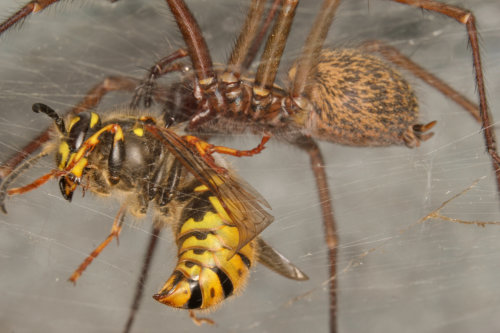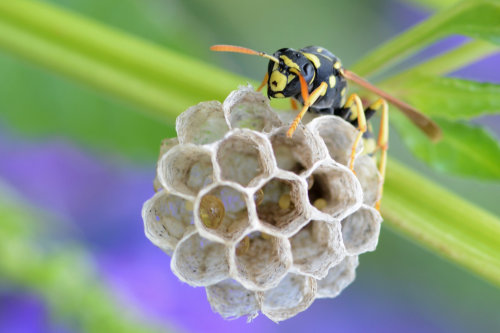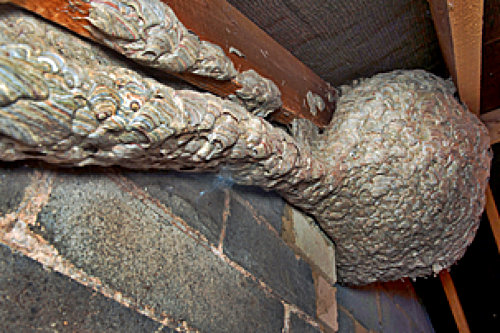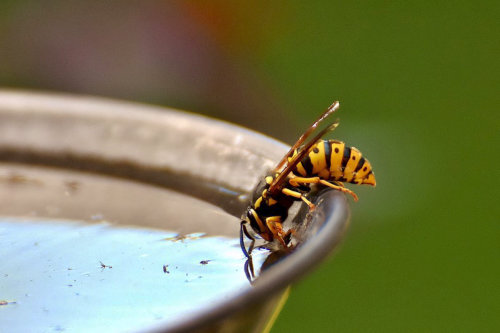The Life Cycle of a Wasp
Hibernation
This actually starts the year before, when newly inseminated queens (usually between 1000 and 1500 of them) leave the nest to breed and then hibernate. The attrition rate of these queens is extremely high. Most are predated on by mainly spiders through the winter months, and only a tiny number (as little as five in a thousand) survive to start a new colony.

Founding The Colony
The queen wasp waits until the temperature indicated to here that there should be enough flowers about before coming out of hibernation. Feeding on nectar which gives her energy, she finds a source of rotten or dead wood which she uses to start to build a nest single-handedly. Within the hexagonal cells in the nest she lays eggs, and when they hatch she starts to catch insects and find rotten meat to provide the protein necessary for the larvae, or grubs. These grubs produce a sugary liquid which feeds the queen in return. When the grubs mature they take over the nest building and the queen restricts her activities to procreating more colony members by laying thousands of eggs.

Developing The Colony
The more mature wasps are now feeding the grubs, mainly on insects, many of which we would consider to be serious pests in their own right. In return the grubs secrete/regurgitate a sweet liquid which feeds the workers. It is at this stage they are positively beneficial to mankind, as they are voracious hunters. It has been estimated that a single colony over a one year cycle can account for between 4 and 5 metric tonnes of insect pests and flies. Some common plants rely on being pollinated by wasps for their existence.

Decline
The decline of the colony. In mid to late summer (depending on the weather) the queen stops laying eggs, and the number of grubs feeding the workers declines. This is when they start to feed on sweeter food, like fruit, or food prepared for humans, and therefore come into conflict with us. Now they are a pest and need to be tackled.


